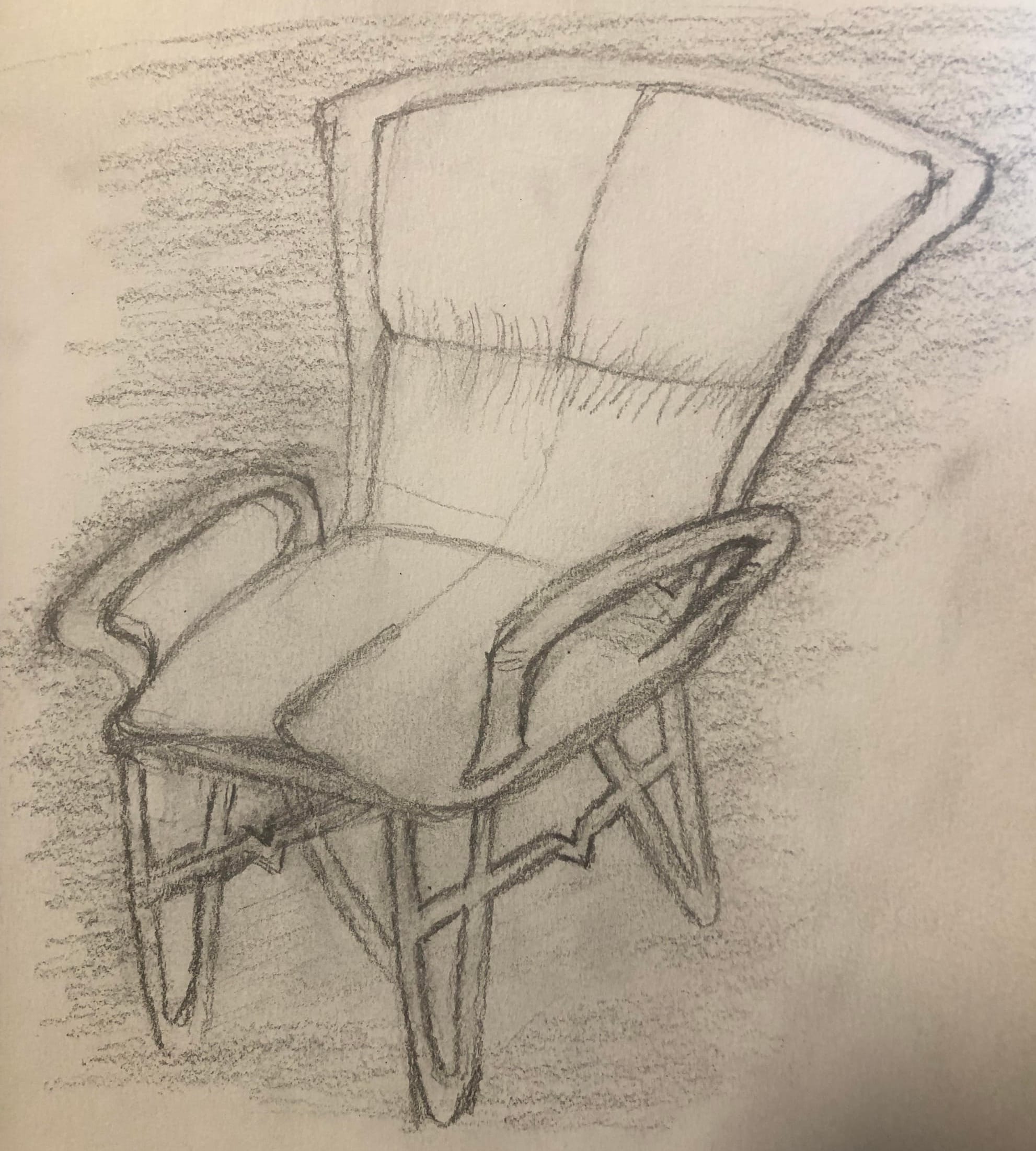Deborah Feldman grew up in the Satmar community of Williamsburg Brooklyn. She left the community sometime in her mid 20s and wrote her memoir talking about her life in the community growing up as a child. Her story delves into the family interactions and how the insular community interacted as she grew up, went to school, got married and became a mother by age 18.
The first half of the story deals with her childhood and the trails of coming of age in a world where there are strict social norms that are tightly regulated within the community.
From the beginning Deborah struggled within the confines of her community. Because of her family history, with a father who suffered from mental illness and a mother who left the Hasidim, Deborah was always somewhat of an outsider within her community.
The second half of the novel deals with the challenges Deborah faced in marriage and becoming a mother at the age of eighteen. Her knowledge of sex was nearly non-existent when she got married and created tremendous pressure on her to the point where it was nearly impossible to have any kind of intimacy with her husband, an arranged marriage with a man she barely knew.
The last 30 or so pages rush through the story of how Deborah decided to leave the Hasidic community. She enrolled in an adult education program at Sarah Lawrence. There she made some friends, was exposed to the outside world and decided that she wanted more from the world than she could get within the confines of the expectations of the woman's role within the community. A terrible accident finalized her decision to end her marriage and begin her life as a single mother, raising her son without the protection of the orthodox family that raised her.
Why is this story so appealing to outsiders?
I hadn't planned on reading this book. I saw it on a bookshelf where I work and was intrigued by the cover. I think the confluence of curiosity about the Hasidic world, along my experience working at a modern orthodox Hebrew school, coupled with a general desire to understand more about the complexities of Judaism, made the book appealing.
People are inherently voyeuristic. There is a thrill to seeing what other people's lives look like. We want to be able to sample from everyone's lives in order to get the best possible outcome. This means we want to be able to take a little from everyone we encounter.
Social media satisfies that human desire to spectate, speculate and judge, much to our detriment. I recognize that I am potentially stepping onto a proverbial landmine by reviewing a book that is critical about a group that has suffered so greatly from the evils of mankind. I wanted to be as careful as possible to not judge a group based upon one persons story. So as I read the book I didn't assume that the authors experience would be indicative of the entire Hasidic experience.
I think for many non Jews the Hasidic community is just that - a group that we know next to nothing about and so we are, at best, curious and at worst, biased against the community that seems to reject any interaction with the rest of the world. Any group that prefers to keep a low profile and be insular lends itself to intense interest. Why don't they want to share what they're doing? Why do they do things so differently? Why do they wear those fur hats in the middle of August? Aren't they hot?! Why don't they conform to our norms? Why don't they want to be more like us?!
Can I trust the author?
I am not accusing Deborah Feldman of making up her story. I recognize that I know next to nothing about the culture in which she was raised. I have no interest in trying to be judgmental about Feldman and I wouldn't presume to know what she is thinking. My main bias is that don't trust the editorial process.
There is a strong financial incentive to favor narratives that emotionally appeal to a western audience over giving the difficult nuances of a life that is very outside of the western experience. I can easily imagine that in the process of writing the book an editor could say something like "this is great Deborah... but how can we focus on the emotional truth of this event?" even if accentuating how something felt might come at the expense of the truth of what actually occurred.
This is probably going to be true about every single autobiography ever written - how can we trust that the author is telling the truth and not writing about events to shine them in the most favorable light?
I struggle to understand how anyone can "secretly" attend a college, for example. If the community is as tightly regulating as Feldman claims, where your neighbors would police your every move, then the idea that a young woman could somehow drive to college for years without getting caught is difficult to imagine.
The question of whether Feldman is a reliable narrator of her story matters tremendously because the reader is going to, intentionally or not, assume that her story tells us something about the Hasidic culture and community. Even as I committed to not assuming that Feldman's story reflected the Hasidic Jewish experience the emotional part of my brain was flummoxed when I read that she had to hide Jane Austen from her grandparents or how she married someone she met one time.
![Thinking is difficult, that's why most people judge." - Carl Jung [1200 × 573] : r/QuotesPorn](https://i.redd.it/1r42rvq7mue11.jpg)
Truth matters because it is easily diluted. Most people will not take the time to look into whether Deborah Feldman told a factually accurate story. Fewer people will take the time to research the the various kinds of Jewish communities or attempt to see whether Feldman's experience says something about her family and her life versus the community as a whole.
The book is now a show on Netflix. The show will reach a far larger audience than the book will ever capture. A show has to be entertaining above any other value which means that the show has a strong incentive to take further liberties with the truth. So if the book is filled with inaccuracies, which are further stretched by the show, then the audience is left with, at best, a simplistic and one dimensional impression of Hasidic life.
Giving the audience what they want
I am definitely not the typical audience for this kind of an autobiography. Odds are the people who are most interested in this kind of book will already have certain notions about feminism and the oppression of women by the patriarchy and will champion a story of a woman escaping from a restrictive community.
That's fine - to each their own. The question for me is how much of the story is her accurate account of what occurred and how much of the story is giving the audience what they want to hear, even if that means omitting relevant contextual details and events?
I briefly looked into criticisms of the story and read comments from people in her former community who knew Feldman. They suggest that Feldman has left out a lot of details. Obviously they were very angry with her when the book was published and their opinions need to be taken with their own grain of salt but among the details the critics discuss is the fact that Feldman minimized her relationship with her mother. Feldman suggests in her version of events that her mother was completely banned from having any interaction with Feldman when she divorced her husband and left the community. Feldman also says that she had to hide books from her grandparents who raised her because she was not allowed to read books.
According to these commenters Feldman and her sister (who was not mentioned once in the book) not only had a relationship with their mother but her mother also took her to the library all the time - which suggests that the supposedly hidden nature of the reading maybe was not so hidden.
Final review based on three questions:
Was the writing compelling? Deborah Feldman is a great writer. Her words are gripping and keep you engaged the entire time. While I was reading I was completely absorbed and couldn't wait to find out what was going to happen. (3/3)
Did I learn anything of value? There are a lot of interesting tidbits about the Satmar Hasidic community that I learned. This is the part that I found the most valuable. I would have liked greater details about the life that she grew up in but this is more of a coming of age story than a portrait of a community. I learned something about Deborah Feldman and her portrayal of her life but not nearly as much about the Hasidic life. (2/3)
Would I re-read this book? Feldman is a good writer. But my issues with trusting her narrative make me unlikely to re-read the book. (0/3)
Total Score: (5/9) - I enjoyed reading the book from a voyeuristic point of view. But I got the impression that the accuracy left much to be desired. This story felt like a cropped photo that removed important background; interesting to look at but lacking in the context to make it worth revisiting.
This essay has also been published by David Lange on his website isreallycool.com
I spend about ten hours a week thinking and writing ideas to distill them into a ten minute read. If you enjoy my writing please share it with someone who might be interested.



Member discussion: